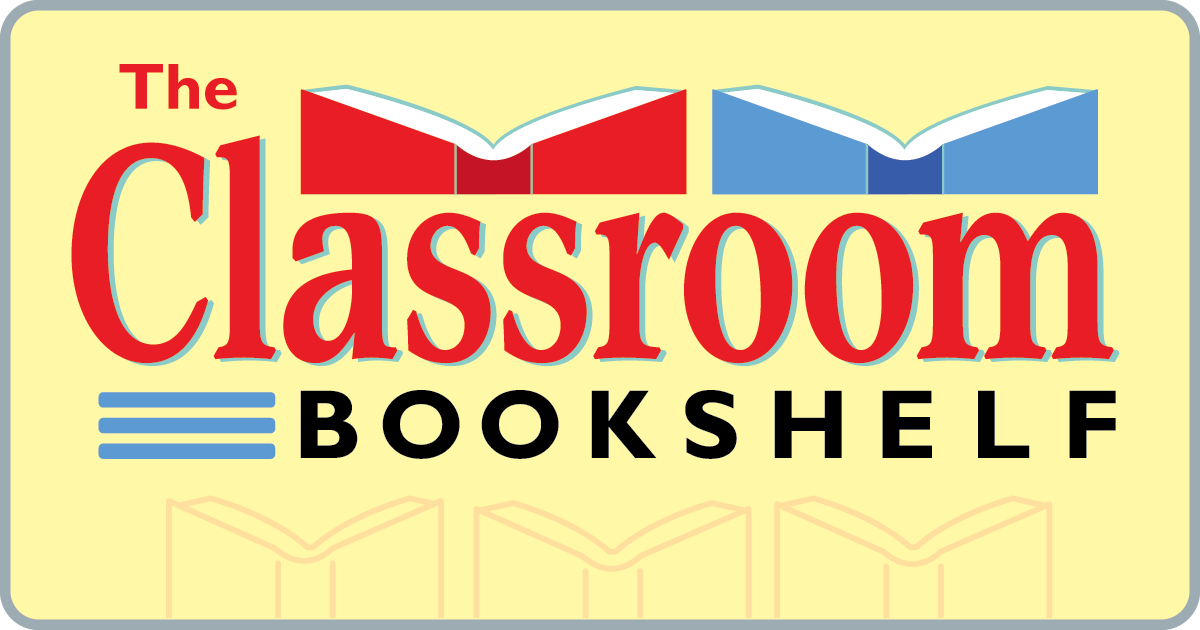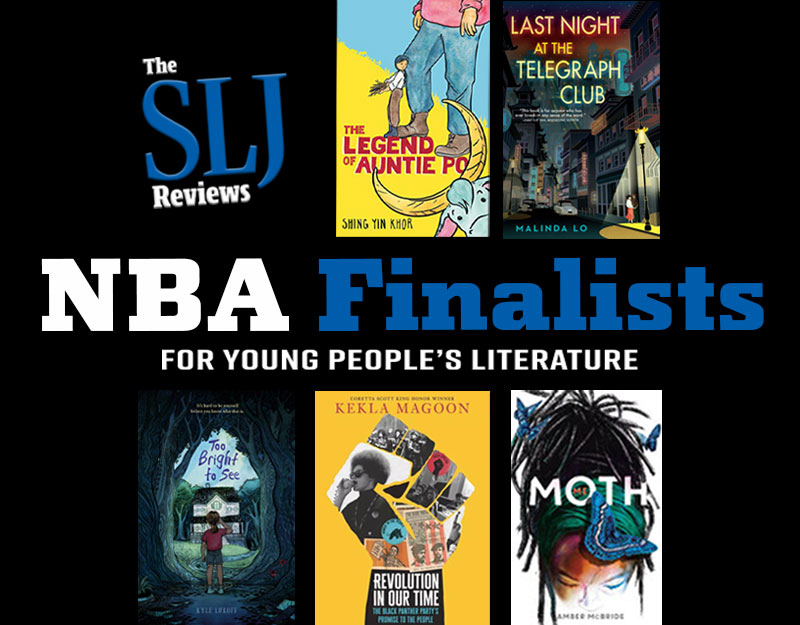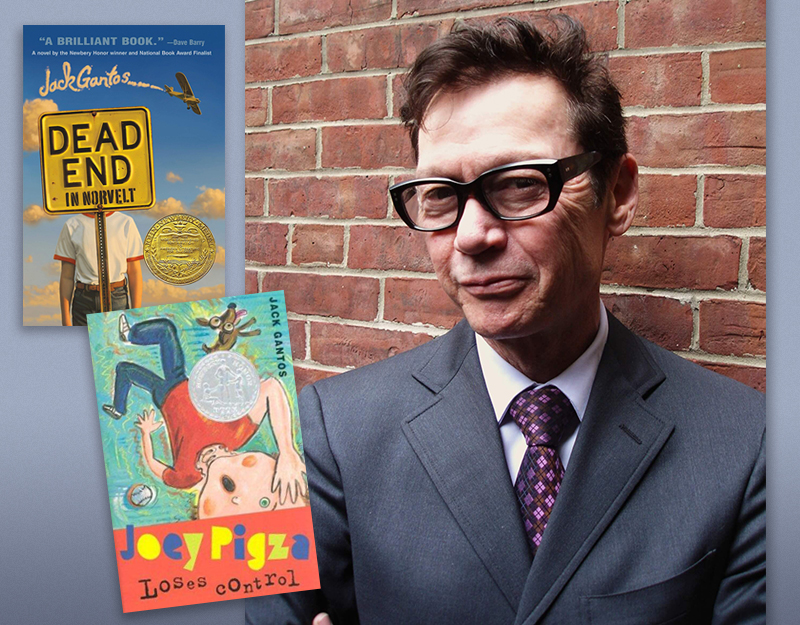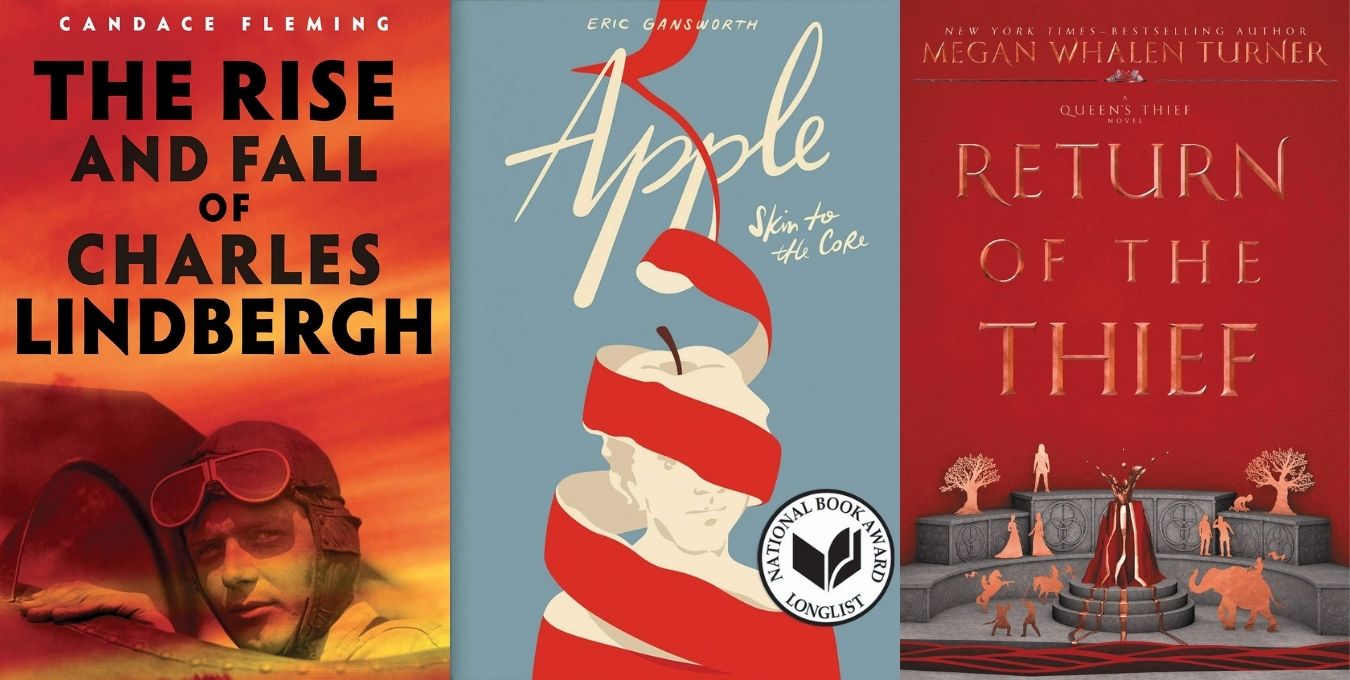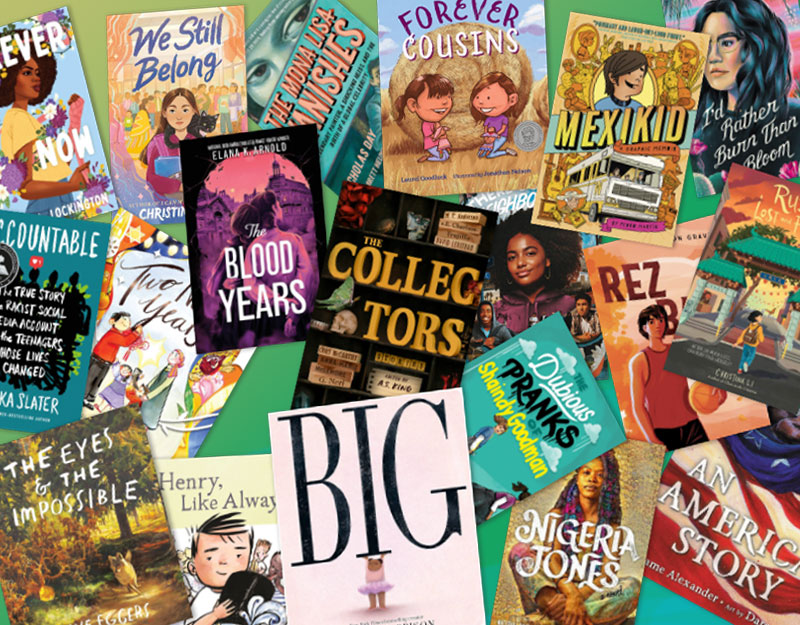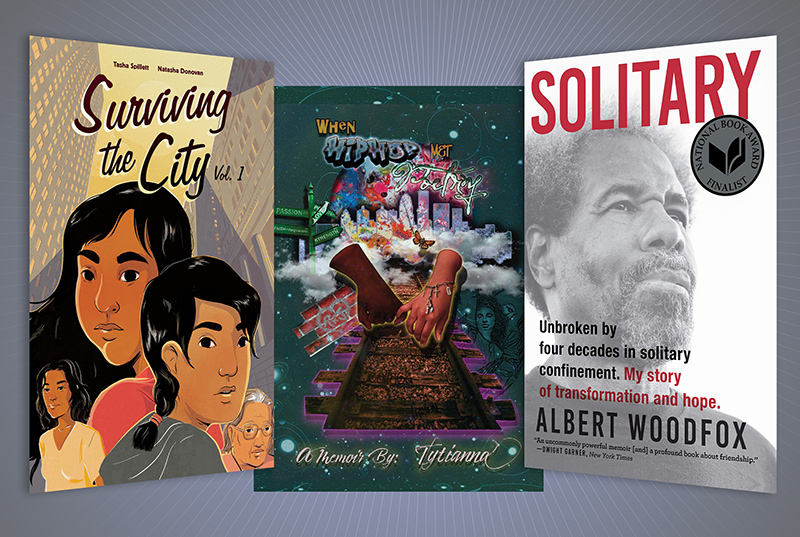Hearing the Melodies of Classmates with Your Name is a Song

Your Name is a Song
Written by Jamilah Thompkins-Bigelow and Illustrated by Luisa Uribe
Published in 2020 by Innovation Press
ISBN 978-1-943147-72-4
Grades PK-6
“I’m not coming back ever again.” A young girl stomps out her anger and frustration as she walks with Momma at the end of the first day of school. The source of her distress? No one could pronounce her name. “Not even the teacher?” queries Momma whose bright red headwrap and rainbow striped pants exude joy and playfulness. As they pass by a street musician, Momma offers some advice: “Tell her your name is a song.” The young girl is skeptical at first, but as Momma describes and puts melody to African, Asian, Black-American, Latinx, and Middle Eastern names, the girl’s posture changes and her face brightens. Passing hip-hop booming cars, sparking streetcars, and park greenery, the pair dance along home against the backdrop of a fantastical sky filled with swirling pastel colors, stars, and comets. Each name Momma sings is followed by a parenthetical phonetic spelling and the text suggests naming traditions across cultures. One particularly poignant line points to resistance to oppression: “Made-up names come from dreamers. Their real names were stolen long ago so they dream up new ones. They make a way out of no way, make names out of no names – pull them from the sky.” Armed with new understandings of the power, beauty, and music of names, the young girl returns to school the next day ready to sing out her own name, Kora-Jalimuso, and the names of her teacher and classmates. Author Jamilah Thompkins-Bigelow is an educator and author who is committed to centering Black and Muslim children in her work. Her collaboration with illustrator Luisa Uribe is a visually-stunning, lyrical celebration of identity, the power of naming, and the importance of voice. When preparing to read this book aloud, be sure to use the author’s name pronunciation video as a resource.
Teaching Ideas: Invitations for Your Classroom
Note our Readers: These ideas are not meant to be prescriptive. Choose one. Choose more. It’s up to you. Some ideas are bigger and will take a number of days to complete. Some are shorter. You can also choose to complete one part of a teaching idea, but not the whole thing. It’s up to you!
ADVERTISEMENT
ADVERTISEMENT
What’s Your Song? Invite your students to explore the musicality of their own names. Students could set their name to a melody, as Momma does with the names in Your Name is a Song, or a rhythm. They could use their voice, or they could use instruments (these can be homemade, such as a coffee can drum or a paper towel tube rain stick – a quick Google search turns up lots of possibilities). After students share their musical names, they can teach their classmates their songs and practice the songs of others. Extend this activity by asking students to think about the melodies and songs that shape their identities. What songs are sung or played by their family members? Their friends? Their community members? How is song connected to identity? Older students can be invited to create and share their own identity playlists. You could also create a class playlist of songs that students select as meaningful to their identities. Invite families to participate!
Illustrating Your Name. Luisa Uribe’s illustrations in Your Name is a Song are breath-taking. The melodies of the names celebrated by Momma swirl across the sky in pastel rainbow colors surrounded by celestial images. Provide your students with a variety of art materials, such as watercolors, pastels or collage materials and invite them to illustrate their names. Leave your instructions open ended so that students could choose to imitate Uribe’s style or take a different approach. Display students names in the classroom (in person or remote). Older students can create a museum display card, describing their illustration in writing (or digitally with a voice recording).
Lifting Your Voice. Kora-Jalimuso is gently encouraged by her mother to speak up to make sure that her teacher and her classmates know how to pronounce her name. Ask students to recall and recount times that they spoke up to advocate for themselves or for their community (responses will certainly vary depending on the ages of your students). Similarly, invite them to explore moments where they wanted to speak up but couldn’t. What were the barriers? Expand your exploration of the power of voice through texts such as these titles featured on The Classroom Bookshelf: Brave Girl: Clara and the Shirtwaist Makers’ Strike of 1909, Drum Dream Girl: How One Girl’s Courage Changed Music, Malala: A Brave Girl from Pakistan/Iqbal: A Brave Boy from Pakistan, I Dissent: Ruth Bader Ginsburg Makes Her Mark, and A Boy and a Jaguar. Consult with your school or public librarian for additional titles and keep an eye out for news stories about young people using their voices for positive change. Invite your students to discuss the aspects and issues of their lives that they want to speak for. Intentionally celebrate the moments across the school year when you hear students speak from the heart, making strong statements with words, art, or action.
Names: A Text Set. Read Your Name is a Song as part of a text set that focuses on names. Include titles such as Juana Martinez-Neal’s How Alma Got Her Name, Kevin Henkes’s classic Chrysanthemum, Helen Recovits’ My Name is Yoon, Karen Lynn Williams’ My Name is Sangoel, Yangsook Choi’s The Name Jar and Leslea Newman’s My Name is Aviva. As you read across titles like these, discuss which aspect of names is addressed in the story (for example: naming practices, character’s feelings about their names, family connections). Being mindful of the varied background of students in your class, particularly of students who belong to foster and adoptive families, open a discussion of names and identity. Allow space for students to explore all aspects of names, including circumstances in which people might choose to use nicknames or change their names in order to affirm aspects of their identity (such as gender). Note, this teaching invitation originally appeared in the entry for How Alma Got Her Name.
ADVERTISEMENT
ADVERTISEMENT
Naming Traditions. Throughout her descriptions of names and their melodies, Momma suggests different naming traditions held by a range of cultures. The book also includes back matter that provides the origins and meanings of each name celebrated in the book. Carry out an investigation of various naming practices, using community resources. Invite community members to share their naming practices and stories through video visits to your classroom. Be sure to include a discussion of how patterns of oppression (enslavement, racism, and bias) have led groups of people to change names and/or reclaim naming power. Momma’s discussion of made-up names and dreamers is the perfect entry point to this discussion. Keep the focus on agency and activism in these discussions.
Just Ask: A Duet Model Reading. An underlying message of Your Name is a Song is the importance of asking for information, listening carefully, and honoring and respecting differences. Another wonderful title that connects directly with this theme is Sonia Sotomayor’s Just Ask!: Be Different, Be Brave, Be You. Read Your Name is Song as a scaffold to the broader discussion of differences in Just Ask! Adopt this mindset for exploring differences throughout the school year, noting when you find this approach modeling in the literature you read and celebrating instances when classmates use this strategy.
Walking and Talking: A Duet Model Reading. Pair a reading of Your Name is a Song with Matt de la Pena and Christian Robinson’s award winning Last Stop on Market Street. After reading both books, invite students to share their observations about similarities and differences across the books. To extend their discussion, invite them to consider the elements of literature: theme, character, setting, style, perspective… Be sure to guide them to notice how both authors weave sensory elements of the walk (things seen, heard, felt) into the discussion between the characters. As an extension, invite students to compose their own walking and talking stories. How does the act of moving through a space together inspire reflective conversation? Expand this Duet Model to a Solar System model by including Yamile Saied Méndez’s Where Are You From? And Oge Mora’s Saturday.
Children’s Books about the Muslim Experience. Jamilah Thompkins-Bigelow is committed to making sure that Black Muslim children see themselves represented in the books they read in their classroom and that they have the opportunity to tell their own stories (she is a member of the Mighty Writers team). Her prior books include Mommy’s Khimar and a short story in the edited collection Once Upon an Eid. Be intentional this school year to include books that represent the Muslim experience, drawing on resources such as this Social Justice Booklist: Muslims, Kitaab World’s Muslim Kids as Heroes, Simon & Schuster’s Imprint: Salaam Reads, and I’m Your Neighbor Books: Muslin Americans.
Further Explorations
Online Resources
Author’s Name Pronunciation Video
Author’s Website: Jamilah Thompkins-Bigelow
Illustrator’s Website: Luisa Uribe
Watch. Connect. Read. Mr. Schu’s Interview with the Author
The Children’s Book Podcast: Matthew Wimmer Interviews Jamilah Thompkins-Bigelow
TESOL International Association: 7 Naming Customs
Social Justice Booklist: Muslims
Kitaab World’s Muslim Kids as Heroes
Simon & Schuster’s Imprint: Salaam Reads
I’m Your Neighbor Books: Muslin Americans
Books
Choi, Y. (2003). The name jar. Dragonfly Books.
De la Pena, M. 2014. Last stop on Market Street. Ill. by C. Robinson. G.P. Putnam’s and Sons.
Henkes, K. (1991). Chrysanthemum. Greenwillow.
Mendez, Y.S. (2019). Where are you from? Ill. J. Kim. Harper Collins.
Mora, O. (2019). Saturday. Little Brown.
Newman, L. (2015). My name is Aviva. Ill. by A.Jatkowska. Minneapolis, MN: Kar-Ben Publishing.
Recorvits, H. (2003). My name is Yoon. Ill. by G. Swiatkowska. Farrar, Straus, & Giroux.
Sotomayor, S. (2019). Just ask!: Be different, be brave, be you. Ill. by R. Lopez. Philomel.
Thompkins-Bigelow, J. (2018). Mommy’s Khimar. Ill by. E. Glenn. Salaam Reads.
Williams, K.L. (2009). My name is Sangoel. Ill. by C. Stock. Eerdmans’s Books for Young Readers.
Filed under: Announcements, Fiction Picture Books, Picture Books
About Erika Thulin Dawes
Erika is a professor of language and literacy at Lesley University. A former classroom teacher, reading specialist, and literacy supervisor, she now teaches courses in children’s literature, early literacy, and literacy methods. Erika is the co-author of Learning to Write with Purpose, Teaching with Text Sets, and Teaching to Complexity.
ADVERTISEMENT
ADVERTISEMENT
SLJ Blog Network
One Star Review, Guess Who? (#202)
Review of the Day: My Antarctica by G. Neri, ill. Corban Wilkin
Exclusive: Giant Magical Otters Invade New Hex Vet Graphic Novel | News
Parsing Religion in Public Schools
Take Five: LGBTQIA+ Middle Grade Novels
ADVERTISEMENT

